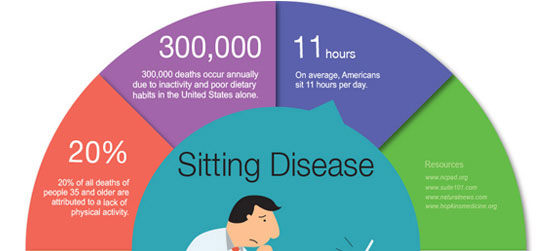
The human body responds to changes through mental, emotional, and physical responses. Some habits can negatively damage your mental health.
Your choices and lifestyle can affect your happiness and wellbeing. One Must create mental health awareness.
Habits that are critical for your mental health usually have an overall effect on your mood, behaviour, relationships, and even your on your brain.
Here are seven habits that could be harming your mental health more than you realise.
1. Guilt And Shame

Guilt helps you to have more empathy for others; Guilt is a feeling that’s caused by something we did wrong or didn’t most times. Guilt and shame is something we feel within ourselves, based on our perception. Various people blame themselves for something they shouldn’t.
Guilt and shame can make you feel undeserving and worthless. And these emotions are the leading causes of problems a lot of people face today, which affect their mental health. To move on is essential to get rid of these emotions.
If you have low self-esteem or have problems around shame, it can be hard to focus on what it is that you feel guilty about. Nevertheless, this is necessary to get past it.
Anybody living with Guilt and shame must be aware of it before they can resolve the situation. Therefore, you need to forgive yourself for the comments or actions that cause you Guilt and shame. If anything is making you feel bad, express it.
Guilt feeds on the stuff we keep to ourselves. The things we scared or risk say out loud. Punishing yourself up will prolong your Guilt and shame; it can ruin your self-esteem. Examine the situations that cause those emotions. Be conscious of your limits because bashing yourself over Guilt and shame is one of the most toxic things that you can do to yourself. Change the negative feeling in you into something positive, get rid of Guilt and shame.
2. Regret

Regrets hurt your mental health. Everyone all has regrets. It is part of human nature. Many people seem to have a habit of sorrow.
However, hanging onto regrets takes up time in your life and keeps you from enjoying the current moment. Regret won’t do you any benefit. It is just a waste of your time and energy for nothing. It won’t improve your life but cause more stress for yourself.
Don’t worry. Nobody is perfect, don’t punish yourself for letting your fear affect you on what you would have done differently or not. And it’s reasonable to be controlled and manipulated by your own emotions. You have to learn from the experience.
Negative thought processes affect the chemistry of your brain in a stressful way, and you alter your overall health. Free yourself from regrets. Everyone makes mistakes — no need to feel worse about it by berating yourself.
Also, Read 8 Early Signs of Liver Damage
3. Overuse Of A Smartphone

Excess smartphone usage can cause a sort of addiction, which can affect your mental health. Smartphone addiction is real, and it’s switching your brain, could cause symptoms of depression, anxiety, stress, low self-esteem loneliness, or feelings of isolation.
Regularly checking your phone can make you more distracted and forget things more easily.
Fighting on social media can develop adverse effects on your mental health. If you’re using smartphone a lot, take a minute to check how it may be affecting your mood and emotions.
Learn to manage your smartphone addiction
- Don’t take your phone to the bedroom, leave them in another room overnight to charge.
- Sometimes, replacing your smartphone with meditating, reading a book, or talking with friends in person.
- You are limiting checking your phone every few minutes to once in 3 or 4 hours.
- To stay well, mentally, and emotionally. Go for a walk with a family member and leave your phone at home.
4. Overstress

Stress is a problem many people face every day, is one of the main problem that causes mental health issues. Overstress can become a disaster on your body and mind, can shrink your brain, creating a cycle of fear and anxiety.
Over time, you’ll not only become more depressed but mental down.
Chronic stress increases the risk of mental issues, and it can also increase your stress hormone cortisol. Also, altering your brain function and placing you at risk for many mood swings, sadness, and other mental problem. Stress can make you lose self-confidence and interest, even forgetting what truly matters and what your priorities are.
Learn to manage your stress:
- Try Relaxation Techniques
- Exercise for at least 25-35 minutes a day.
- Avoid stressful situations
- Meditation
- Eat a healthy diet
- Get enough sleep
- Do something you enjoy
- Avoid Caffeine, alcohol, and nicotine.
5. Being Too Sedentary

Sedentary people are those who perform less than 90- 95 minutes of physical activity per week. Lack of physical activity can lead to the risk of developing a mental health disorder. One of the leading causes of obesity, depression, cardiovascular problems, and chronic fatigue is sedentarism.
Sitting all day can create back pain, neck pain, and headaches and leave you feeling burnout over long periods. A sedentary lifestyle can influence your mind to the point you get tired right away when you do any physical task.
Adding a 20-minute physical activity of any sort to your daily routine can lower your risks of chronic health conditions, mental health disorders, and premature death.
Also, Read 6 Exercises For Women Who Want Perfect Buttocks, Thighs, and Legs
6. Poor Quality Sleep

Good sleep is essential for your physical and psychological health. Insufficient sleep has apparent adverse effects on the body. When you get enough good quality sleep, you feel better physically and mentally, and function better during the day.
Sleepless than 7 hours per night will affect your blood circulation and can cause fatigue, loss of appetite, depression, premature wrinkles, underlying eyes, and skin. The immune system is most affected by lack of sleep. When you sleep better, you will feel better mentally.
You need to sleep for 7-9 hours every night. A night of restful sleep will help improve your mental health and brain.
Way to improve sleep quality
- Stop using electronic devices such as laptop, TV, or cellphone at least 30 minutes before bedtime.
- keeping a regular bedtime/wake schedule
- Restrict your alcohol intake to one drinks per day.
- Avoid caffeinated beverages within 4 hours of bedtime
- Meditation techniques
- Breathing exercises
7. Staying All The Time Indoors


Spending too many time indoors can have an adverse result on physical and mental health. You’d think staying indoor always and away from people would make you more relaxed.
But quite the opposite, it will increase your stress levels, also make you feel more irritable or anxious. Not spending quiet time in the sun can also point to vitamin D deficiency and sleeping disorder. The lack of talking with friends/family in person can increase feelings of loneliness, which then lead to depression.
Staying indoors too much is bad for your overall health.
Take a short walk outside, and you need sunlight to increase your levels of serotonin. Getting some fresh air can do you some good for your mental health.
Mental Health Counselor
A mental health counsellor is a medical professional who helps patients achieve emotional wellness. Counsellors often see patients on an ongoing basis as one part of a treatment plan.
